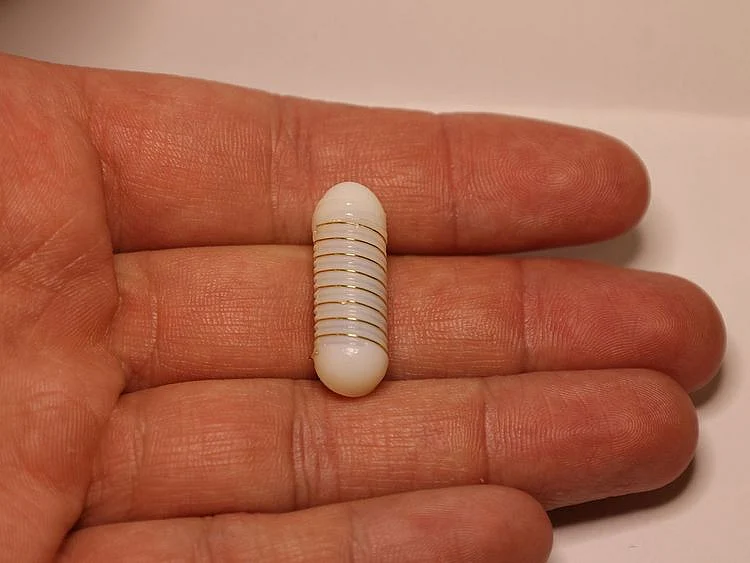NYU Abu Dhabi develops ingestible device to help curb hunger signals, treat metabolic diseases
Capsule connects to stomach tissue and helps modulate hunger hormones

Abu Dhabi: A team of researchers at NYU Abu Dhabi (NYUAD), have developed an ingestible device that could modulate hunger-triggering hormones, and therefore help treat metabolic and neurological disease.
The electroceutical device, called a FLASH system, is shaped like a small capsule, can connect directly to stomach tissue, and help neuromodulate the gut-brain axis, the signaling pathway between the gastrointestinal tract and central nervous system.
Published study
The project was led by Professor Khalil Ramadi, director of the NYUAD’s Laboratory for Advanced Neuroengineering and Translational Medicine, in collaboration with Professor Giovanni Traverso and graduate student James McRae at the Massachusetts Institute of Technology.
How it works
The gut-brain axis regulates several physiological functions, including feeding and emotional behavior. Other existing pharmaceutical and surgical methods to modulate the axis, including implanting electrodes through surgery, are imprecise, invasive, and have been associated with significant recovery periods and associated risks. The FLASH system uses electrodes on its surface to deliver electrical stimulation to stomach mucosal tissue. Inspired by the water wicking skin of Moloch horridus, the Australian thorny devil lizard, FLASH features a fluid-wicking capsule coating with grooved patterns and a hydrophilic (water compatible) surface, enabling it to bypass the gastric fluid in the stomach and achieve direct electrode-tissue contact. Gastric electrical stimulation (GES) then induces the release of the hormone ghrelin, which stimulates hunger, from the gastric mucosa through endoscopic stimulation.
Oral ingestion of the FLASH capsule has been shown to modulate levels of the ghrelin hormone significantly and repeatedly. In the paper titled Bioinspired, fluid-wicking, ingestible electroceutical capsules for hunger-regulating hormone modulation published today, the researchers report the process of developing the FLASH capsules, which are swallowed, deliver stimulation to the stomach, and are then excreted safely. The capsules are powered by ingestible batteries, which were shown to deliver stimulation for 20 minutes, and are then excreted within two weeks of ingestion in large animals.
Benefits
Current hormone medications have poor bioavailability when taken orally. This is why medications such as insulin need to be injected. FLASH, on the other hand, can be taken orally to specifically target gastric neurohormonal circuits and modulate hormone levels in the blood. It is anticipated that this device could be used for a range of applications to treat metabolic, feeding, gastrointestinal and neuropsychiatric disorders non-invasively, and with minimal off-target effects.
“Electroceuticals, or electrical stimulation therapies, have emerged as the next frontier of neuromodulation. FLASH is one of the first ingestible electroceuticals that can regulate precise neurohormonal circuits, while avoiding the discomfort patients can experience with invasive treatments, “ Dr Ramadai said.
The researcher said there is likely to be much more progress soon in the uses and benefits of ingestibles.
“Future ingestible electroceutical systems could be designed and customised for specific applications beyond acute, short-term gastric stimulation,” he said..
Sign up for the Daily Briefing
Get the latest news and updates straight to your inbox
Network Links
GN StoreDownload our app
© Al Nisr Publishing LLC 2025. All rights reserved.